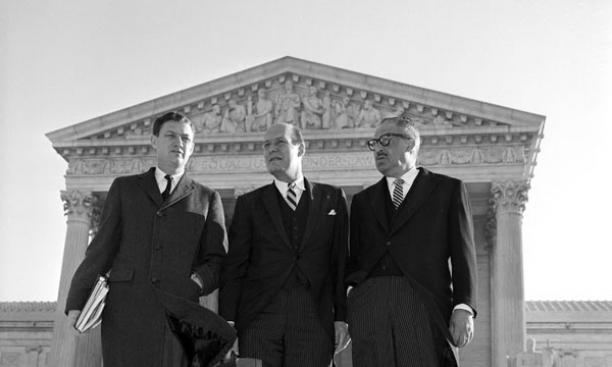

Two alumni who served in the Justice Department in the 1960s returned to campus last month to help commemorate the integration of the University of Alabama, a landmark civil rights victory in which they played a part.
Nicholas Katzenbach ’43, the deputy attorney general at the time, and John Doar ’44, who was working in the civil rights division, spoke during a panel discussion that followed a screening of the 1963 documentary film Crisis: Behind a Presidential Commitment, which focused on how the Kennedy administration handled the confrontation in June of that year with Alabama Gov. George Wallace.
Film director Robert Drew praised Katzenbach and Doar for their courageous involvement in the events. “I had a revelation here today,” Drew said. “There were heroes involved here, people that were actually making this happen, and Katzenbach and Doar are two of these people.”
Doar spoke proudly of his colleagues’ work and their contribution to civil rights legislation.
“We built a record that something else had to be done, and ultimately the Voting Rights Act — the great piece of legislation in the 1960s — got passed,” he said. “As a result, within a number of years the world really changed, and to me it was a period of history that all of us can be really proud of.”
Along with D.A. Pennebaker, a cameraman on the project who later became a distinguished filmmaker, Drew discussed the trailblazing format of the cinema vérité documentary. Controversial at the time of its release, Crisis has been described as the only film to present candid footage of a president — John F. Kennedy — and his aides making decisions in the midst of a crisis.
“For people to actually see the way in which those decisions are made, to see that they’re made like any other human beings’ decisions, is critical,” said Katzenbach. “They reveal wonderful moments of the kind of democracy that we all want to have.”
History professor Sean Wilentz said Doar and Katzenbach shared “an unwavering commitment to ending the evils of legally sanctioned discrimination — as well as an uncommon calm and determination when facing down the forces of white supremacy.”
